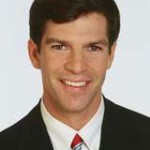 Articles like this just warm my heart – and probably John Edwards’ too. “Super PAC Timing Raises Questions” [Politico]
Articles like this just warm my heart – and probably John Edwards’ too. “Super PAC Timing Raises Questions” [Politico]
Jeff SmithRecovering PoliticianTHEN: State Senator (MO), 2006-2009, Candidate for U.S. Congress, 2004 NOW: Writer Full Biography: link
The overall vote was reportedly 271 to 3 against Kerrey, with the vote among tenured faculty 74-2 against, and Kerrey announced his resignation soon thereafter. (I was not on faculty then.) This occurred after Kerrey went through five provosts in seven years before naming himself provost in addition to president, which helped trigger student occupations of the administration building (back before the word “occupy” was capitalized).
So in my view, he ought to try to make lemons from lemonade: find some footage of himself clashing with unkempt student protesters (he called police during the occupation and students were forcibly removed) and have someone put it up on YouTube. Say that he got pushed out because people rejected his “common-sense Midwestern approach.” Read the rest of…
And he brings a ton of Indian money, although that’s probably the last of Romney’s worries. I don’t, however, think he’s the best choice, for a few reasons.
Second, he doesn’t help in the Appalachian hollows in swing states like Ohio and Virginia where both Romney and Obama have struggled to connect; in the eyes of those voters he’s just as “exotic” as Obama.
Third, the exorcism. Do the Republicans really want to put up 1) a guy who sadistically pins down boys he suspects are gay to shear them and 2) a guy who pins down women he thinks are possessed by Satan to exorcise them?
Read the rest of…
Artur writes that “if one’s perspective is that Mitt Romney’s opposition to gay marriage and his parting of ways with a staffer whose public position was at odds with his own both amount to homophobia or bigotry,” then there is no room left for civil debate.
A bit of sophistry there. I never said that Romney’s position or his pushing out of Grenell amounted to homophobia and bigotry. I said that it amounted to a weakness of character. While out, loud, and proud, Grenell worked for eight years for George W. Bush, serving as spokesman to Ambassadors Bolton and Negroponte, as well as John Danforth and Zalmay Khalilzad. Bush, of course, also strongly opposed gay marriage and pushed a constitutional amendment to ban it. The point is that Grenell was at odds with Bush too but Bush understood that not every member of your administration will agree with every single one of the administration’s positions; it is, however, critical that employees agree with those positions in the realm in which they work. But as Jonah Goldberg from Artur’s own NRO writes, Romney should understand that if you’re going to oppose gay marriage, you will have zero chance of convincing anyone your position isn’t driven by anti-gay animus if you’re also opposed to gays working in policy areas that have nothing to do with gay marriage.
That Mitt Romney bullied a young gay man as a teenager should not, in and of itself, be disqualifying; it happened fifty years ago.
What should be disqualifying is the fact that Romney chased his national security spokesman Richard Grenell out of campaign HQ with a proverbial scissors two weeks ago, when his campaign folded to the pressure of anti-gay social conservatives and told Grenell – a respected foreign policy expert – that Grenell would not be allowed to speak on the record. And what should be disqualifying is that Romney accepted Grenell’s resignation willingly – “whew, that mini-crisis is over” – instead of having the character to say, “No. I hired you to be our national security spokesman because of your credentials and that hasn’t changed just because a few bigots have a problem with your sexual orientation.” That lack of character – signs of which some may detect in his role as a Cranbrook ringleader – is why Republicans, independents, and Democrats agree that Romney is one of the least likeable presidential candidates since Nixon.
The media attention surrounding my own guilty plea, resignation and prison sentence was extremely painful. Yet it was nothing compared with the widespread ridicule Edwards has received. His public image is ruined, and he faces a real possibility of prison. Even so, prison is not an appropriate punishment for someone who conceals an affair.
Read the rest of… For every wing-nut who would’ve stayed home in November without Bachmann’s endorsement, or simply voted for Romney without volunteering for him, there is at least one swing voter who is turned off by her. But these effects are so marginal. Endorsements mean precious little in general elections, and endorsements from failed presidential candidates who are forced to drop out the night of the caucus they were originally supposed to win mean even less. (Cross-posted, with permission of the author, from Politico’s Arena)
If John Edwards goes to prison, then many other politicians should join him, according to the Department of Justice’s logic. A candidate who innocuously accepts a second-hand sportcoat from a supporter who laments the candidate’s ill-fitting blazer, or accepts a free haircut from a friendly barber who understands the importance of candidate’s presentation – but doesn’t report them on quarterly contribution reporting form – has broken the law just as John Edwards did, albeit on a slightly smaller scale.
But if the DOJ has anything to say about it, there will be a precedent set for candidates, even political neophytes who know little about the intricacies of federal campaign finance law. Any failure to report such gifts would merit a felony charge and, potentially, prison time. Read the rest of…
The program exceeded all of my highest expectations. In thirty minutes, the program provides a new, independent look at the career, scandal and recovery of Jeff Smith. And, while I am obviously biased, I think it demonstrates that despite his serious setbacks, Jeff’s voice will continue to educate, provoke and make us laugh for many years to come. Click here to listen to the podcast: “The Postcard Only Rings Once. We are really thrilled to report that contributing RP Jeff Smith will be the featured guest this weekend on National Public Radio’s “This American Life,” the wildly popular radio program hosted by Ira Glass. Jeff will be discussing his unique career trajectory — from rising political star, to federal prisoner, to college professor on the journey toward redemption. It’s a journey that he first discussed exclusive at The Recovering Politician. And soon, we will expect a bestselling book on the experience. The show sounds very interesting:
Check your local NPR schedules this weekend for “This American Life,” and/or the podcast will be available on Sunday at 7:00 PM EDT by clicking here. So please tune into Jeff this weekend! |
| ||
| Copyright © 2026 The Recovering Politician - All Rights Reserved | |||





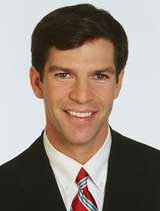






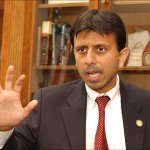
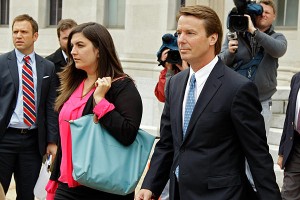
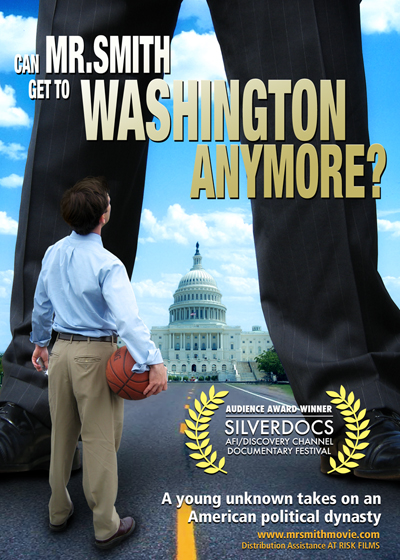









Follow Jeff Smith: